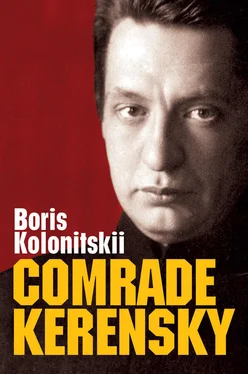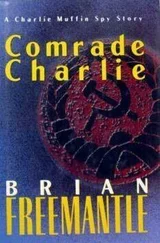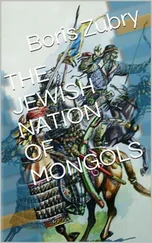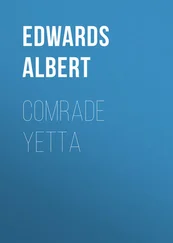137 137. Abraham, Alexander Kerensky, pp. 123–4.
138 138. Lenin (Ul’ianov), Vladimir Il”ich, Polnoe sobranie sochinenii, 5th edn (Moscow: Politizdat, 1960–81), vol. 30 (1969), pp. 243, 341.
139 139. ‘Privetstvie sotsialistov-revoliutsionerov A. F. Kerenskomu’, Novoe vremia, 5 March 1917.
140 140. Kir’iakov, ‘A. F. Kerenskii’, Niva, no. 20 (1917), p. 296; E. V–ch, A. F. Kerenskii narodnyi ministr, p. 11.
141 141. Aleksandr Kerenskii, Prorocheskie slova A. F. Kerenskogo, proiznesennye 19 iiulia 1915 goda v Gosudarstvennoi dume (Petrograd: Broshiura, 1917).
142 142. Kerenskii, Rechi A. F. Kerenskogo o revoliutsii, p. 3.
143 143. Ibid., pp. 13–48; Kerensky, The Catastrophe, p. 104; Melancon, The Socialist Revolutionaries, p. 217; Vladimir Obolenskii, Moia zhizn’: Moi sovremenniki (Paris: YMCA Press, 1988), p. 511.The government did indeed try to bring Kerenskii to trial, for which it required the full text of his speech. The Duma chairman, however, had had it excised from the official record. Rodzianko came to the deputy’s defence, and the Duma resolved that the version approved for printing by the Duma chairman should be considered the verbatim account and that the version typed up from shorthand notes should be considered only raw material for compiling the record. Accordingly, the typed-up notes of the shorthand typist could not be handed over on demand to a government ministry. Only the judiciary had authority to require such information. See Kerensky, The Kerensky Memoirs, p. 187; ‘Doneseniia L. K. Kumanina iz Ministerskogo pavil’ona Gosudarstvennoi Dumy, dekabr’ 1911–fevral’ 1917 goda’, Voprosy istorii, no. 6 (2000), p. 21.
144 144. Kir’iakov, ‘A. F. Kerenskii’, Niva, no. 20 (1917), p. 296.
145 145. ‘Perepiska pravykh i drugie materialy ob ikh deiatel’nosti v 1914–1917 godakh’, Voprosy istorii, no. 10 (1996), p. 122.
146 146. ‘K istorii poslednikh dnei tsarskogo rezhima (1916–1917 gg.)’, publication by Petr Sadikov, Krasnyi arkhiv, vol. 1 (14) (1926), p. 246; Abraham, Alexander Kerensky, p. 123.
147 147. Boris Sokoloff, The White Nights: Pages from a Russian Doctor’s Notebook (London: Holborn, 1956), pp. 7–8.
148 148. Aleksandr Fedorovich Kerenskii (Po materialam Departamenta politsii), p. 20; Nikolai Sukhanov, Zapiski o revoliutsii (Berlin: Grzhebin, 1922), kn. 1, pp. 63, 69.
149 149. Zenzinov, ‘Fevral’skie dni’, Novyi zhurnal [New York], kn. 34 (1953), pp. 196–8.
150 150. Kerensky, The Kerensky Memoirs, p. 189.
151 151. M. Merzon, ‘A. F. Kerenskii v Moskve’, Nizhegorodskii listok, 1 June 1917.
152 152. Sergei Mel’gunov, Martovskie dni 1917 goda (Paris: Veche, 1961), p. 20; Zenzinov, ‘Fevral’skie dni’, p. 210; Aleksandr Kerenskii, ‘“Fevral’skaia revoliutsiia”: Protokol oprosa’, Orion: Literaturno-khudozhestvennyi ezhemesiachnik [Tiflis], no. 2 (1919), pp. 61–2; Il’ia Iurenev (Konstantin Krotovskii), ‘“Mezhraionka” (1911–1917 gg.)’, Proletarskaia revoliutsiia, no. 2 (25) (1924), pp. 136–8; Kerensky, The Catastrophe, pp. 6–7. Meetings between legal and illegal political figures had been held earlier, in late January and early February, in the apartments of Nikolai Sokolov, Aleksandr Gal’pern and Kerenskii, who were the principal organizers of these meetings. Boris Nikolaevskii writes about the ‘Sokolov–Kerenskii–Gal’pern group’. Boris Nikolaevskii, ‘Iz istorii Fevral’skoi revoliutsii’, Novoe russkoe slovo, 5 May 1957.
153 153. Vladimir Obolenskii, a Constitutional Democrat and Freemason close to Kerenskii, recalled that the latter had also underestimated the scale of the movement and expected the unrest to be suppressed. Obolenskii, Moia zhizn’, p. 510.
154 154. Kerensky, The Kerensky Memoirs, p. 189.
155 155. Basil Gourko, War and Revolution in Russia, 1914–1917 (New York: Macmillan, 1919), pp. 331–2.
156 156. On 26 February, Kerenskii learned of the mutiny of the 4th Company of the Pavlovsky Guards Regiment, and even reported to the deputies of the Duma that the entire regiment had mutinied. Vladimir Cherniaev, ‘Vosstanie Pavlovskogo polka 26 fevralia 1917 g.’, Rabochii klass Rossii, ego soiuzniki i politicheskie protivniki v 1917 godu: Sbornik nauchnykh trudov, ed. Oleg Znamenskii (Leningrad: Nauka, 1989), p. 163. This was incorrect. The company’s mutiny was isolated, and many soldiers were arrested by troops loyal to the government. News of the Pavlovsky mutiny influenced soldiers of other regiments, but on the night of 26 February Kerenskii could not have known that.
157 157. Kerensky, The Catastrophe, pp. 1–2; Stankevich, Vospominaniia (Leningrad: Priboi, 1926), p. 36.
158 158. Kerensky, The Kerensky Memoirs, p. 195.
159 159. 181 Kerensky, The Catastrophe, pp. 7–8, 10–11; Kerensky, The Kerensky Memoirs, pp. 195–6.
160 160. Kerensky, The Kerensky Memoirs, pp. 195–6; Fevral’skaia revoliutsiia 1917 goda: Sb. dokumentov i materialov, ed. Ol’ga Shashkova (Moscow: Rossiiskii gosudarstvennyi gumanitarnyi universitet, RGGU, 1996), p. 72; Andrei Nikolaev, Gosudarstvennaia duma v Fevral’skoi revoliutsii: Ocherki istorii (Riazan’: Notre Dame University, 2002), pp. 24–5; Andrei Nikolaev, Revoliutsiia i vlast’: IV Gosudarstvennaia duma 27 fevralia–3 marta 1917 goda (St Petersburg: Rossiiskii gosudarstvennyi pedagogicheskii universitet imeni A. I. Gertsena, RGPU im. Gertsena, 2005), pp. 120–37.
161 161. E. V–ch, A. F. Kerenskii narodnyi ministr, p. 15.
162 162. Vasilii Vodovozov, ‘Ob”iasnenie po povodu moego pis’ma k A. F. Kerenskomu’, Den’ [Petrograd], 8 March 1917.
163 163. Mel’gunov, Martovskie dni 1917 goda, p. 26; Semion Lyandres, ‘On the Problem of “Indecisiveness” among the Duma Leaders during the February Revolution: The Imperial Decree of Prorogation and Decision to Convene the Private Meeting of February 27, 1917’, Soviet and Post-Soviet Review, 24/1–2 (1997), pp. 115–28; ‘Chastnoe soveshchanie chlenov Gosudarstvennoi Dumy 27 fevralia 1917 [goda]’, publication by Semion Lyandres, Berliner Jahrbuch für osteuropäische Geschichte: 1997 (Berlin: Humboldt University, 1998), pp. 305–24.
164 164. Nikolaev, Gosudarstvennaia duma v Fevral’skoi revoliutsii, pp. 47–9; Nikolaev, Revoliutsiia i vlast’, pp. 176–9.
165 165. Zenzinov, ‘Fevral’skie dni’, p. 210; Mel’gunov, Martovskie dni 1917 goda, p. 27; The Russian Provisional Government, 1917: Documents, 3 vols, ed. Robert P. Browder and Alexander F. Kerensky (Stanford, CA: Stanford University Press, 1961), vol. 1, pp. 45–7; Aleksandr Spiridovich, Velikaia voina i Fevral’skaia revoliutsiia, 1914–1917 gg., 3 vols (New York: Vseslavianskoe izdatel’stvo, 1960–62), vol. 3, p. 126; Eduard Burdzhalov, Vtoraia russkaia revoliutsiia: Vosstanie v Petrograde (Moscow: Nauka, 1967), p. 228.
166 166. Nikolaev, Gosudarstvennaia duma v Fevral’skoi revoliutsii, pp. 48–51; Nikolaev, Revoliutsiia i vlast’, pp. 181–4.
167 167. Kerensky, The Catastrophe, pp. 14–15; Kerensky, The Kerensky Memoirs, pp. 196–7; Aleksandr Poliakov, ‘Komnata no. 10’, Novoe russkoe slovo, 23 March 1947; Mel’gunov, Martovskie dni 1917 goda, pp. 29–30.
168 168. Aleksei Ksiunin, ‘Kak proizoshla revoliutsiia’, Novoe vremia, 5 March 1917.
169 169. Anon, Syn Velikoi Russkoi Revoliutsii, p. 4.
170 170. Vodovozov, ‘Ob”iasnenie po povodu moego pis’ma k A. F. Kerenskomu’.
171 171. Petrogradskii Sovet rabochikh i soldatskikh deputatov v 1917 godu: Protokoly, stenogrammy i otchety, rezoliutsii, postanovleniia obshchikh sobranii, sobraniia sektsii, zasedaniia Ispolnitel’nogo komiteta i fraktsii, 27 fevralia–25 oktiabria 1917 goda, 5 vols, ed. Bella Gal’perina and Vitalii Startsev, vol. 1 (St Petersburg: Zvezda, 1993), p. 589.
Читать дальше









